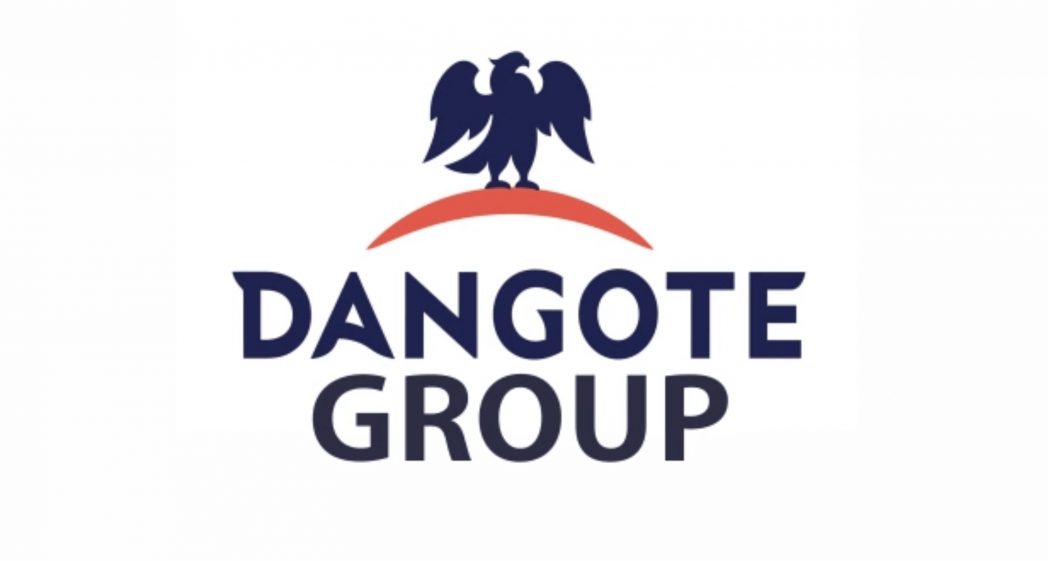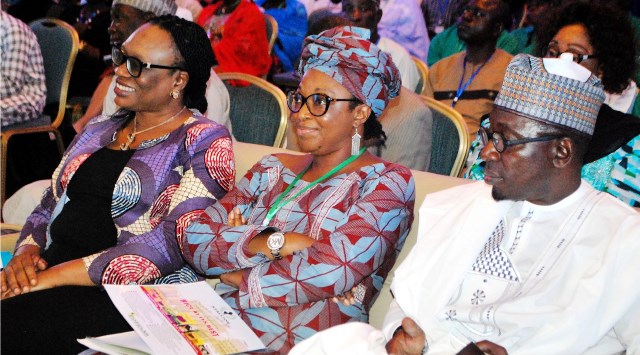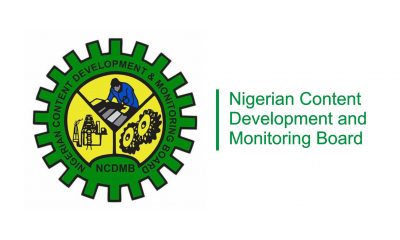News
Dangote Proffers Solutions To Investors, Manufacturers Leaving Nigeria

The President, Dangote Industries Limited, Aliko Dangote, has identified solutions to sustaining existing local and foreign investments as well as attracting new investors into the country.
Dangote gave the solutions in a keynote speech delivered at the opening of a three-day Nigeria Manufacturers Summit with the theme,” Rethinking Manufacturing in Nigeria”.
The Tide’s source reports that the summit, held at the Banquet Hall, State House, Abuja, was declared open by Vice President Kashim Shettima.
The Africa richest man said, to arrest investors from leaving the country in droves and attract new ones, the Federal Government must initiate deliberate industrial policies that assure investors of support and protection
According to him, such policies are the greatest incentives for all existing investors, manufacturers, both local and foreign.
The industrialist also noted that foreign investors, manufacturers would be attracted only when they see that local investors are also doing well.
According to him, what attracts foreign investment is not when the President or any other government agencies go outside the country to seek for foreign investment.
“ I am recommending that government policies should support, protect existing industries so that others will know that their investments will also be protected.
“ Is there any better incentives than that ? I don’t think so.
“So, I humbly summit that an industrial policy that assures investors of support and protection is the greatest incentives for all investors both local and foreign,” he said.
Dangote also underscored the importance of stable and affordable power, as well accessible financing to sustaining and attracting investors and manufacturers.
He said stable, affordable power and access to finance by manufacturers and investors would guarantee growth, industrialisation and prosperity.
According to him, import dependent economy is equivalent to importing poverty and exporting jobs.
He further said that when government policies become more supportive and protective, investors would be more willing to collaborate and partner with government.
“ This will help in resolving others challenges such as infrastructure deficit, market instability and market economic issues such as inflation and foreign exchange volatility.
“However, ignoring all these facts is what give rise to insecurity, banditry, kidnappings and abject poverty in the land,” he said
On Bank loans to investors, Dangote said that the current 30 per cent interest rates is stifling growth and there is no way anybody can create jobs.
The business magnate, however, expressed the optimism that Nigeria has all it takes to develop and sustain a globally competitive manufacturing sector.
“To do so, we must rethink our industrialisation policy. We must look to leading countries in the West and the East who are actually protecting their domestic industries.
“We must similarly, introduce policies to protect our domestic industries and nurture them into home champions that will create the jobs and prosperity we desperately need.
“ The time to rethink our industrial policy is now,” Dangote said.
He reiterated that manufacturing remains the key driver in the nation’s quest to economic development and self sufficiency.
Dangote added that the strengths of a country’s manufacturing sector determines its capacity to compete in global trade.
Also speaking at the event, a former Minister of Industry, Trade and Investment, Olusegun Aganga, appealed to President Bola Tinubu to declare manufacturing, a national priority sector.
News
Bill For Compulsory Counselling For Convicted Corrupt Nigerians Scales Second Reading
A bill to amend the Corrupt Practices and Other Related Offences Act 2000 has passed its second reading in the House of Representatives.
The bill, which mandates compulsory counselling and training for individuals convicted of corruption-related offences, was sponsored by Kayode Akiolu (APC-Lagos) during plenary on Wednesday.
Leading the debate, Mr Akiolu explained that the bill sought to amend Section 67 of the principal act, introducing new provisions that were not part of the original section.
“These additional provisions, found in subsections 2, 3, and 4 of the amendment bill, require judges and magistrates to not only impose imprisonment and/or fines on those convicted of corruption but also mandate a minimum four-week anti-corruption counselling and training.
“The counselling and training will be designed and delivered by the Anti-Corruption Academy of Nigeria (ACAN) and aims to address the psychological factors related to corrupt behaviour,” Mr Akiolu said.
Mr Akiolu emphasised that the training would help reform convicts by addressing their corrupt tendencies and could even transform them into advocates for anti-corruption efforts.
He added that this approach aligned with the reformative aspect of the criminal justice system, which focused on punishment and rehabilitation.
“As per subsection 4, the bill allows magistrates and judges to order convicts to cover the cost of their counselling and training, preventing additional financial burdens on the government,” the lawmaker noted.
Mr Akiolu further argued that if the bill is passed into law, it would strengthen the country’s fight against corruption.
Given the widespread negative impact of corruption, he urged the House to support the bill for the country’s benefit.
Following the debate, Speaker Tajudeen Abbas referred the bill to the relevant committee for further legislative consideration.
News
Judiciary, Media Key Pillars Of Democracy, Says CJN

The Judiciary and the Media are key pillars of democracy, the Chief Justice of Nigeria (CJN), Justice Kudirat Kekere-Ekun, has said.
Kekere-Ekun made this statement in her address at the 2024 National Conference of the National Association of Judiciary Correspondents (NAJUC).
The CJN was represented by Mr Abdulaziz Olumo, the Secretary of the National Judicial Institute (NJI).
“ The judiciary and the media occupy unique and complementary roles in any democratic society.
“ The judiciary serves as the guardian of justice, equity, and the rule of law, the media acts as the conscience of society, disseminating information, shaping public opinion, and ensuring accountability.
“ Together, these institutions provide checks and balances that strengthen the fabric of democracy,” she said.
Quoting Felix Frankfurter, a former U.S. Supreme Court Justice, she said: free press is not to be preferred to an independent judiciary, nor an independent judiciary to a free press. Neither has primacy over the other; both are indispensable to a free society.”
The CJN said this dynamic interdependence between the judiciary and the media presents opportunities and challenges alike.
“ The media is entrusted with the responsibility of informing the public about judicial activities, the judiciary relies on accurate and ethical reportage to enhance public confidence in its work.
“ However, the inherent power of the media to influence public opinion requires careful management, especially when its focus turns to judicial proceedings.
“ The question posed by Robert J.Cordy, a former Associate Justice of the Massachusetts Supreme Judicial Court, is pertinent here: “What happens when the free press turns its sights on the courts-scrutinizing, sensationalizing, and exposing the frailties of the judiciary while questioning its ethical standards and performance?”
“The media’s capacity to shape narratives and perceptions is undeniable” she said.
Quoting Jim Morrison , she said “Whoever controls the media controls the mind.”
According to her, this underscores the immense responsibility placed on journalists to report truthfully, fairly, and objectively.
“ Unfortunately, the commercialisation of news and external influences have led to the rise of sensationalism-a practice that distorts facts, erodes trust, and undermines the very essence of journalism.
“ Sensationalised headlines, such as the infamous 2016 headline “We raided the houses of ‘corrupt, unholy’ judges, says DSS,” can paint a skewed picture of the judiciary and its officers. Such reporting, often devoid of context, compromises the integrity of the justice system and misleads the public.
“ Closely tied to this is the issue of “trial by media,” where premature and often biased media narratives prejudge cases and infringe on the constitutional rights of individuals” she said.
She added that as Mahatma Gandhi rightly observed, “The sole aim of journalism should be service.” It is imperative for media practitioners to remain steadfast in their commitment to truth and objectivity.
To this end, she advised, the National Association of Judiciary Correspondents to take proactive steps to regulate the activities of its members.
“ This is not merely about enforcing rules but about fostering professionalism and safeguarding the credibility of the media.
“ The judiciary and the media must work as partners in progress.
“ To bridge the gap between these institutions, there is a pressing need for constructive engagement and mutual understanding.
“ Courts can provide the media with guidelines on judicial processes, courtroom decorum, and the nuances of court proceedings.
She noted that globally, courts have adopted initiatives to support the media’s role in reporting judicial matters.
For instance, she said the Supreme Court of Dakota’s media guide outlines protocols for courtroom reporting, while the UK ‘s Media Guidance document provides clarity on access and etiquette for journalists.
“ These examples demonstrate how structured collaboration can enhance the quality of judicial reportage.
“ In Nigeria, we can take a cue from these models by developing a comprehensive media guide tailored to our judicial landscape.
“ This initiative, which would involve inputs from NAJUC and judicial stakeholders, would not only enhance media access to courtrooms but also ensure that judicial activities are accurately and responsibly reported” she said.
She advocated that judiciary correspondents must make deliberate efforts to familiarise themselves with the rules and procedures of the courts.
She added that understanding these frameworks will enable journalists to navigate the complexities of judicial proceedings effectively and responsibly.
“ Training programs such as this conference play a crucial role in equipping judiciary correspondents with the knowledge and skills needed to report judicial matters accurately.
“ The theme of this year’s conference, “The Role of Courts in Enforcement of Judgments,” is both timely and significant, as it addresses an aspect of judicial work that is critical to upholding the rule of law and ensuring justice.
“ I commend NAJUC for its commitment to promoting accountability and transparency through its engagements with the judiciary.
“ As I conclude, I must emphasize the importance of credible journalism in strengthening public trust in the judiciary” she said.
She urged judiciary correspondents to prioritise the pursuit of truth and objectivity, resist undue influences, and remain steadfast in their commitment to ethical standards.
She commended the leadership of NAJUC, under the chairmanship of Mr Kayode Lawal, for its efforts in promoting professionalism among judiciary correspondents.
News
Senate Issues Arrest Warrant Against Julius Berger MD Over Road Project

The Senate has issued an arrest warrant for the Managing Director of Julius Berger Nigeria Plc, Dr Peer Lubasch, to appear before its Committee on Works.
The Tide’s source reports that the warrant was for Lubasch to explain the utilisation of funds appropriated for the reconstruction work on Calabar-Odukpani-Itu highway.
The warrant followed the adoption of a motion sponsored by Sen. Osita Ngwu (PDP- Enugu) and co-sponsored by Sen. Asuquo Ekpenyong (APC-Cross River) and Sen. Mpigi Barinada (PDP- Rivers) at plenary in Abuja, yesterday.
Ngwu, in the motion said, that the senate had mandated the committee on works to conduct investigation into the state of road infrastructure across the country.
He said that in furtherance to the investigative hearings, Julius Berger refused to honour invitations to provide details of its role in the Calabar-Odukpani-Itu highway project, in spite of receiving substantial public funds.
He said that this was worrisome, given the alarming discrepancies in performance among contractors on the project, with specific reference to Julius Berger for failing to meet delivery timelines.
Ngwu said it was the constitutional powers of the National Assembly under Sections 8 and 89 of the 1999 Constitution, as amended, to conduct investigations on any person or organisation responsible for administering public funds.
He said that the powers set out in section 6 of the legislative powers and privileges act empowered the Senate to issue warrants of arrest on persons in contempt of its proceedings.
The Tide source reports that the senate further ruled that President of the Senate, Godswill Akpabio, should sign the warrant, mandating the Julius Berger managing director to appear on a date to be communicated.
Akpabio said that the senate’s decision was in line with its constitutional powers under Section 89 of the 1999 Constitution (as amended).
“This senate will not tolerate the continued disregard of its authority.
“The managing director of Julius Berger must appear before the relevant committee, failing which further actions will be taken as prescribed by the constitution.
“The point of order, which was supported by the majority of the senators, highlighted the importance of upholding the integrity of the legislature.
“The senate committee will submit its findings to the National Assembly after the MD’s appearance.
“If there is any further failure to comply, we shall take the necessary steps to ensure respect for the constitution and the rule of law,” Akpabio said.
-

 Business2 days ago
Business2 days agoIFAD, VCDP Harp On Rice threshing Machines To Boost Harvest
-

 Featured2 days ago
Featured2 days agoWe’re Working To Improve Quality Of Life Of Rivers People -Fubara …As Taraba Gov Inaugurates 6.55km Okania-Ogbogoro-Mgbaraja Roads Project
-
Sports2 days ago
NBF Announces Olympics Preparation Date
-
Nation2 days ago
Community Organises Civic Reception For LG Boss
-
Rivers2 days ago
Expert Advocates IT Driven Security In Rivers
-
News2 days ago
Tinubu To Present 2025 Budget To NASS Dec 17
-
News2 days ago
Fubara Unveils Steps To Boost Agriculture In Etche …As Omehia Flags Off Egwi-Afara-Mba Road Project Says Road’ll Enhance Connectivity, Economic Activities
-

 Business2 days ago
Business2 days agoNCDMB Tasks Media Practitioners On Effective Reportage

